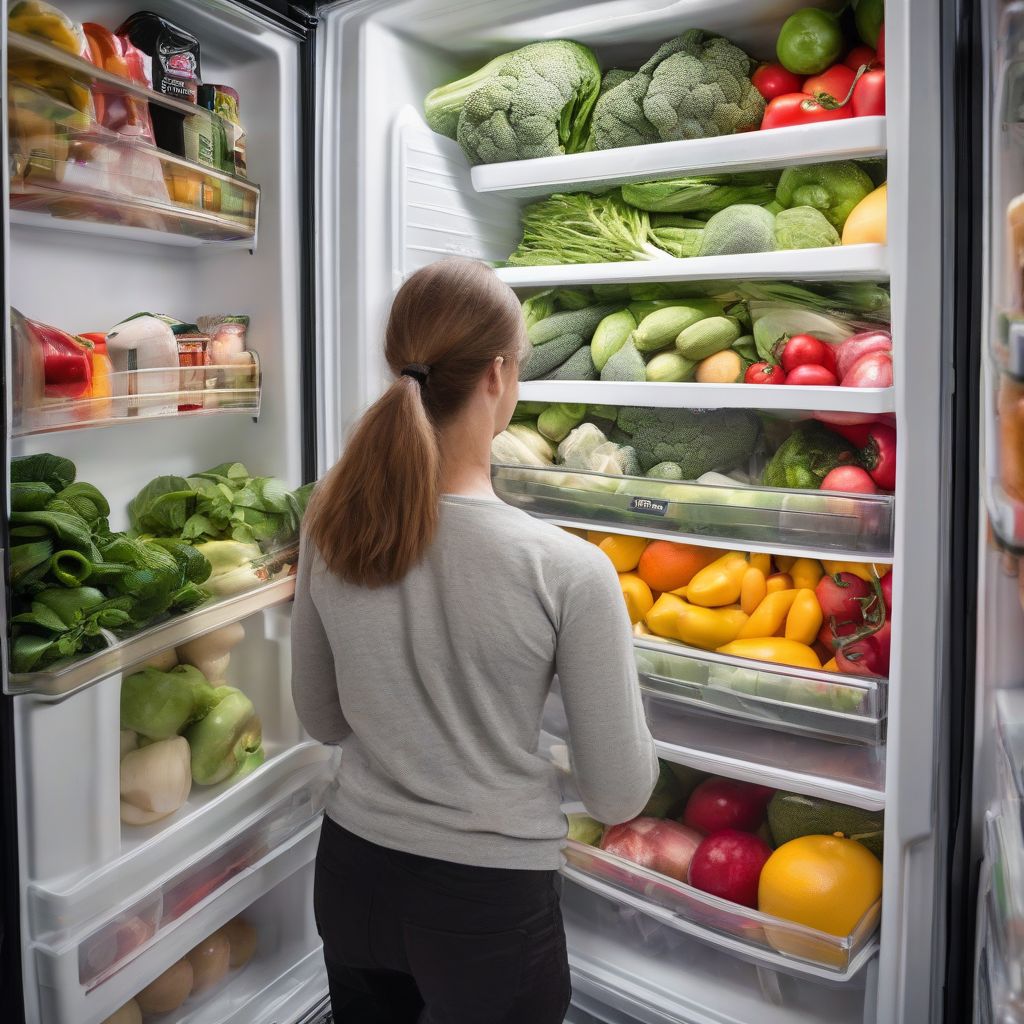Picture this: you’re strolling through a bustling city park, enjoying the vibrant energy and the sight of lush greenery. But amidst this urban oasis, something catches your eye – a half-eaten sandwich discarded on a bench, a pile of uneaten takeout containers overflowing from a nearby bin. This, unfortunately, is the reality of food waste in our cities – a silent epidemic with significant environmental and social consequences.
The good news? Each of us can become part of the solution. By making conscious choices and adopting simple habits, we can dramatically reduce food waste in our homes and contribute to a more sustainable urban environment. This comprehensive guide will equip you with practical tips, expert advice, and actionable steps to minimize food waste in the city, one delicious meal at a time.
Understanding the Food Waste Challenge in Urban Areas
Before diving into solutions, let’s shed light on the magnitude of the problem. According to the United Nations, one-third of all food produced globally goes to waste, and cities, being centers of consumption, contribute significantly to this problem.
Why is minimizing food waste in the city important?
- Environmental Impact: Rotting food in landfills releases methane, a potent greenhouse gas contributing to climate change.
- Economic Loss: Wasted food translates to wasted resources – water, energy, land, and labor – used in its production, packaging, and transportation.
- Social Responsibility: While tons of food are discarded, millions of people worldwide experience food insecurity.
 Reducing food waste in the city
Reducing food waste in the city
Practical Tips to Minimize Food Waste at Home
The journey to reducing food waste starts in your own kitchen. These simple yet effective strategies will help you become a more conscious consumer:
1. Plan Your Meals and Shop Smart:
- Meal Planning Magic: Dedicate a few minutes each week to plan your meals and create a corresponding grocery list. This prevents impulse purchases and ensures you buy only what you’ll actually use.
- Embrace the Leftover Love: Designate a day for “leftover makeovers.” Get creative and transform last night’s dinner into a brand-new lunch or a tasty frittata.
2. Master the Art of Food Storage:
- FIFO is Your Friend: Implement the “First In, First Out” method in your refrigerator and pantry. Rotate older items to the front and use them before they expire.
- Storage Savvy: Familiarize yourself with proper storage techniques for different foods. Invest in airtight containers, reusable wraps, and produce-saving tools to maintain freshness.
3. Become a Label Detective:
- Decode the Dates: Understand the difference between “use-by,” “sell-by,” and “best-before” dates. Often, food is still safe to consume after the “best-before” date if stored properly.
- Trust Your Senses: Don’t solely rely on dates; use your senses to determine freshness. If it looks, smells, and tastes alright, it’s likely safe to eat.
4. Compost Like a Pro:
- Composting for Beginners: Start composting food scraps, coffee grounds, and yard waste. It’s easier than you think, and the nutrient-rich compost can be used to nourish your plants.
- Community Composting: If space is limited, explore community composting initiatives or consider using a composting service.
City-Specific Initiatives to Combat Food Waste
Cities worldwide are implementing innovative programs to tackle food waste head-on. Here are some inspiring examples:
- Food Waste Collection Programs: Many cities offer separate collection bins or curbside pickup for food scraps, diverting them from landfills and transforming them into compost or energy.
- Food Banks and Community Fridges: Support local food banks and community fridges by donating surplus food or volunteering your time.
- Restaurant Initiatives: Numerous restaurants have joined the fight by reducing portion sizes, donating leftovers, and implementing sustainable practices.
Embrace a Mindful Eating Philosophy
Beyond practical tips, minimizing food waste is about adopting a more mindful approach to food and appreciating its value. By shifting our mindset, we can make a lasting impact:
- Appreciate the Journey: Reflect on the resources and effort required to bring food to your plate. This awareness can foster a sense of gratitude and encourage less wasteful habits.
- Support Sustainable Businesses: Choose restaurants and food vendors that prioritize food waste reduction and sustainable practices.
- Spread the Word: Share your knowledge and inspire others in your community to join the movement against food waste.
Conclusion
Minimizing food waste in the city is a collective effort that requires conscious action from individuals, communities, and businesses. By implementing practical tips, supporting local initiatives, and embracing a mindful eating philosophy, we can significantly reduce our environmental footprint and contribute to a more sustainable urban future. Remember, every small step counts, and together, we can make a big difference. Start today, and let’s transform our cities into beacons of food consciousness and sustainability!
What are your favorite strategies for reducing food waste? Share your tips and join the conversation below!
[amazon bestseller=”food waste”]
